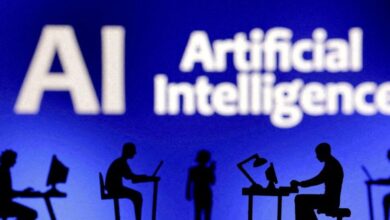Bitcoin Miners Delve Into Artificial Intelligence, Forecasting Billions in Possible Revenue

With mining rewards slashed from 6.25 to 3.125 BTC post-halving, Bitcoin miners are getting creative in their profit-making methods. Miners like Core Scientific have diversified into artificial intelligence (AI) and machine learning (ML) fields.
Training AI models requires massive infrastructure and a power supply. Gaint Bitcoin Miners such as Core Scientific can handle the enormous workload needed to integrate the technology.
Core Scientific Pen Twelve-year Deal With CoreWeave
Core Scientific has announced a monumental twelve-year deal with CoreWeave, a cloud-based AI firm backed by private equity firms and Nvidia. This agreement strengthens the existing partnership between the two giants to secure over $3.5 billion in revenue.
According to the contract terms, Core Scientific will provide 200MW of power to accommodate CoreWeave’s High-Performance Computer (HPC). The Bitcoin miner plans to modify its sites for data purposes in the second half of 2024 and begin operations in the first half of 2025.
Reacting to the latest developments, Core Scientific CEO Adam Sullivan said the alliance positions Core Scientific at an advantage in transforming its hosting business.
It will also boost Core Scientific’s earning power by unlocking massive opportunities in AI computing. Sullivan also stated that Core Scientific will maintain a strong Bitcoin mining franchise.
A CNBC report reveals that Core Scientific has quietly been venturing into artificial intelligence for five years. The company overcame bankruptcy and began to diversify in 2019. Adam Sullivan believes that Bitcoin mining facilities are the power shells of the data center industry.
Other Bitcoin Miners Also Taking Initiative to Diversity
Besides Core Scientific, top Bitcoin miners such as Hut 8, Hive, TerraWulf, and Bit Digital seek new methods to boost revenue. This ripple effect from the Bitcoin halving slashed miners’ rewards.
For instance, TerraWulf, which uses nuclear energy to power its mining operations, now seeks to diversify into machine learning.
Currently, the firm has two megawatts set aside for HPC capacity. It also plans to smoothly transition its energy infrastructure towards artificial intelligence and HPC. OpenAI’s CEO Sam Altman revealed to CNBC last year that he firmly believes in nuclear power for AI purposes.
Altman says nuclear power is the best way to achieve the required energy to power AI. Although storing solar power could help, Altman believes nuclear remains the best energy source.
Also, Hut 8 reports profitable returns in the first quarter of 2024. According to the report, the company realized a revenue of $51.7 million.
These reports prove that most Bitcoin miners have the resources to delve into the vast world of artificial intelligence. Meanwhile, a report from the Electric Power Research Institute shows the impact of data centers on national electricity. The report states that data centers could consume 9% of a country’s total electricity by 2030.
This represents an increase from the 4% estimated in 2023. So, nuclear solutions provided by Bitcoin miners such as TerraWulf come in handy. With such diversification strategies, Bitcoin miners could beef up their returns, probably exceeding estimated figures.



